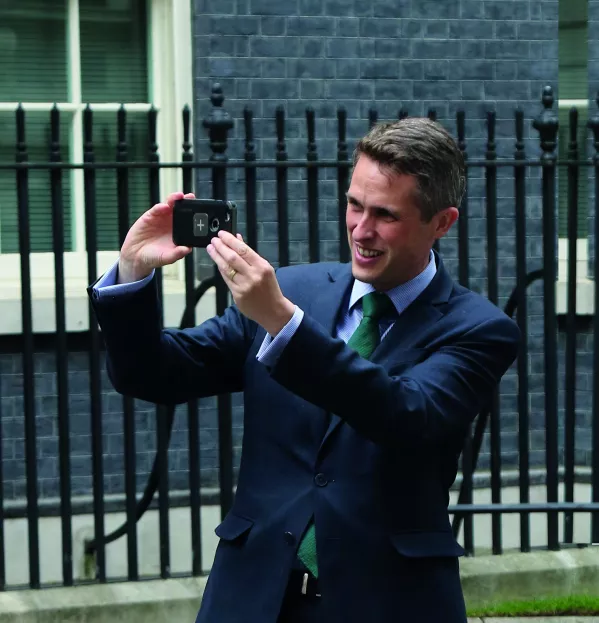Meet the new boss - same as the old boss?

Teachers may have broken up for the summer but the education world keeps on turning. Last week, Gavin Williamson was appointed our new education secretary (just the fifth in little more than five years and the fourth since Michael Gove).
It’s hard to get excited about yet another change at the top of the Department for Education when everyone knows education is a long game. The previous three incumbents have lasted an average of just 20 months each. That’s not long enough to effect any major, lasting changes, unlike those of Gove, who had the luxury of more than four years in the role, with nearly three years as a shadow to prepare.
Importantly - and again unlike Gove, who was all about standards and appealing to parents - all three were focused on winning over teachers, which is vital in a retention crisis. Williamson, however, with his pledge to “drive up standards”, feels very much like a return to the past. And with Gove’s former henchman Dominic Cummings back in government, one can’t shake off the feeling of unfinished business.
Williamson has started by making all the right noises. He loves education - it’s always been close to his heart, he says, and he has promised it will be “at the very heart” of the new government, with FE a big priority.
Unfortunately, that just doesn’t stack up. Instead it feels like there’s been a diminution of education. The DfE has, in effect, been downsized, with the number of ministers cut from six to five (apart from Williamson, there’s one new minister, one returner, one who’s been there for ever and the free one).
FE and skills, despite its professed importance, has ended up with no minister at all. But in a masterful bit of spinning worthy of Cronus, Williamson’s pet spider, it was announced that the brief was, in fact, so important that the education secretary would take personal control of this portfolio with a little help from new children’s minister Kemi Badenoch. She is, rather fortuitously, a former apprentice who did her A levels part-time at an FE college (bit.ly/GavSkills).
Phew! And there were we thinking that they’d reached the maximum number of ministers they could appoint and had forgotten all about FE and skills. Those welcoming this supposed strong backing for education’s so-called middle child seem to have missed the point that the secretary of state would have had responsibility for FE anyway and the sector has now been left without a dedicated minister.
Williamson comes in at a pivotal time for standards. A report this week from the Education Policy Institute reveals that, for the first time since 2011, the gap has widened between the attainment of disadvantaged secondary school pupils and that of their peers. The very poorest children are now further behind than they were a decade ago, on average 22.6 months of learning behind others by the time they take GCSEs. The largest disadvantage gaps at age 16 are concentrated in the North. And austerity is being blamed for this.
For all the Tory promises of more cash for schools and Williamson’s three Fs (funding, FE and free schools) priorities, the new education secretary is starting off on the back foot. He may want to drive up standards, but first he is going to have to arrest the decline for disadvantaged children, especially as this disproportionately affects Brexit heartlands in the North. And he takes over a diminished department in a government that appeared to forget one of its major education pledges.
He’s got off lightly thus far. It may well be a very different story after the summer break when everyone returns refreshed, ready for the fight and with a few Fs of their own. And if this signals a return to the Gove-Cummings era of 2010-14, strap in for a turbulent ride.
This article originally appeared in the 2 August 2019 issue under the headline “Gove-in Williamson could be an unwelcome blast from the past”
You need a Tes subscription to read this article
Subscribe now to read this article and get other subscriber-only content:
- Unlimited access to all Tes magazine content
- Exclusive subscriber-only stories
- Award-winning email newsletters
Already a subscriber? Log in
You need a subscription to read this article
Subscribe now to read this article and get other subscriber-only content, including:
- Unlimited access to all Tes magazine content
- Exclusive subscriber-only stories
- Award-winning email newsletters